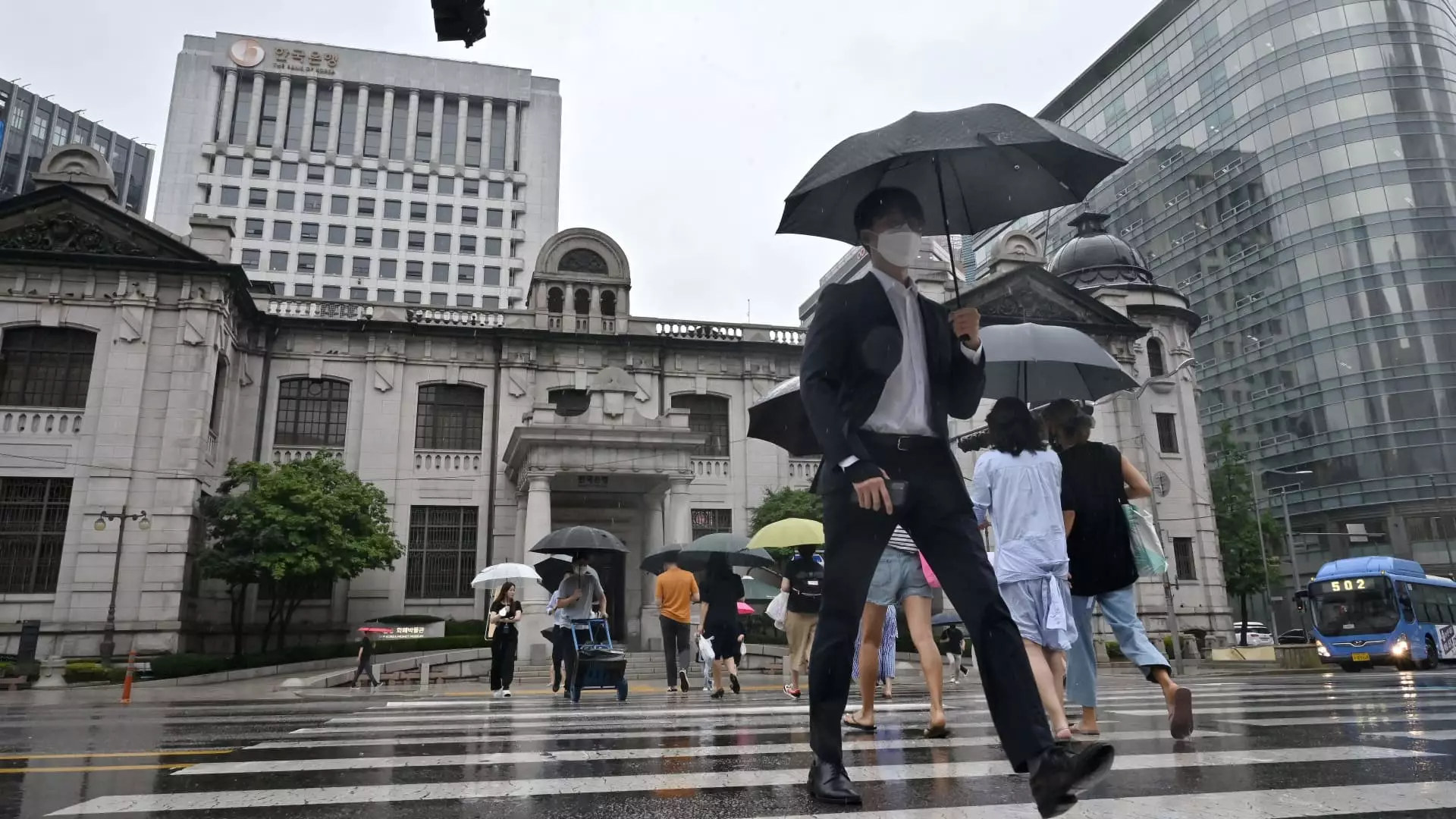In a significant policy adjustment, South Korea’s central bank, the Bank of Korea (BOK), has decisively lowered its benchmark interest rate by 25 basis points to 3.25%. This marks the first reduction in rates since the Federal Reserve initiated its tightening measures back in March 2022. The decision reflects the bank’s responsiveness to changing economic conditions and aligns with expectations from economists, as evidenced by a recent Reuters poll. The rate cut comes on the heels of a notable retreat in the inflation rate, which dipped to 1.6% in September – the lowest figure recorded in over three years.
The BOK is framing this decision as a response to an easing inflation climate. The central bank’s evaluation indicated that inflation is “showing a clear trend of stabilization.” Inflation had spiked to 6.3% in July 2022, but it has since moderated considerably, suggesting that the economy may be adapting to a more stable price environment. The BOK’s comments also suggest a broader context of financial health, indicating a slowdown in household debt growth and reduced volatility in the foreign exchange markets, further justifying the rate cut.
The BOK began a rigorous cycle of interest rate increases in August 2021, culminating in a total increment of 300 basis points over 16 months, which pushed rates to a 15-year high of 3.5% earlier this year. This aggressive stance initially aimed to combat rising inflation, which reached precarious levels amid global economic uncertainties. However, the landscape has shifted, allowing the BOK to reconsider its previously hawkish approach in light of stabilizing economic indicators.
Economists are already speculating about the implications of this interest rate cut. Park Seok Gil, a prominent economist at JPMorgan, suggests that this action could be the beginning of a broader cycle of rate reductions, not as a response to a faltering economy, but rather as a move towards normalizing monetary policy. A projected continuation of this strategic easing could positively affect private consumption, an essential driver of economic growth.
Prominent institutions like Morgan Stanley also echo this sentiment, viewing the BOK’s decision as long overdue given the updated macroeconomic landscape, which has shown a gradual decrease in inflationary pressure since mid-2023. Chief Korea Economist Kathleen Oh emphasized the importance of a supportive inflationary context, underscoring that reduced upward pressures have allowed the central bank more leeway in adjusting rates.
In essence, the BOK’s recent interest rate cut is a strategic response to evolving economic conditions. By taking these steps, the bank is not just acting in immediate reaction to low inflation rates, but also preparing the ground for potential enhancements in consumer spending and overall economic activity. As the global economic landscape continues to adapt, the adaptability of the Bank of Korea’s monetary policy will be crucial in steering South Korea through these uncertain waters.


Leave a Reply